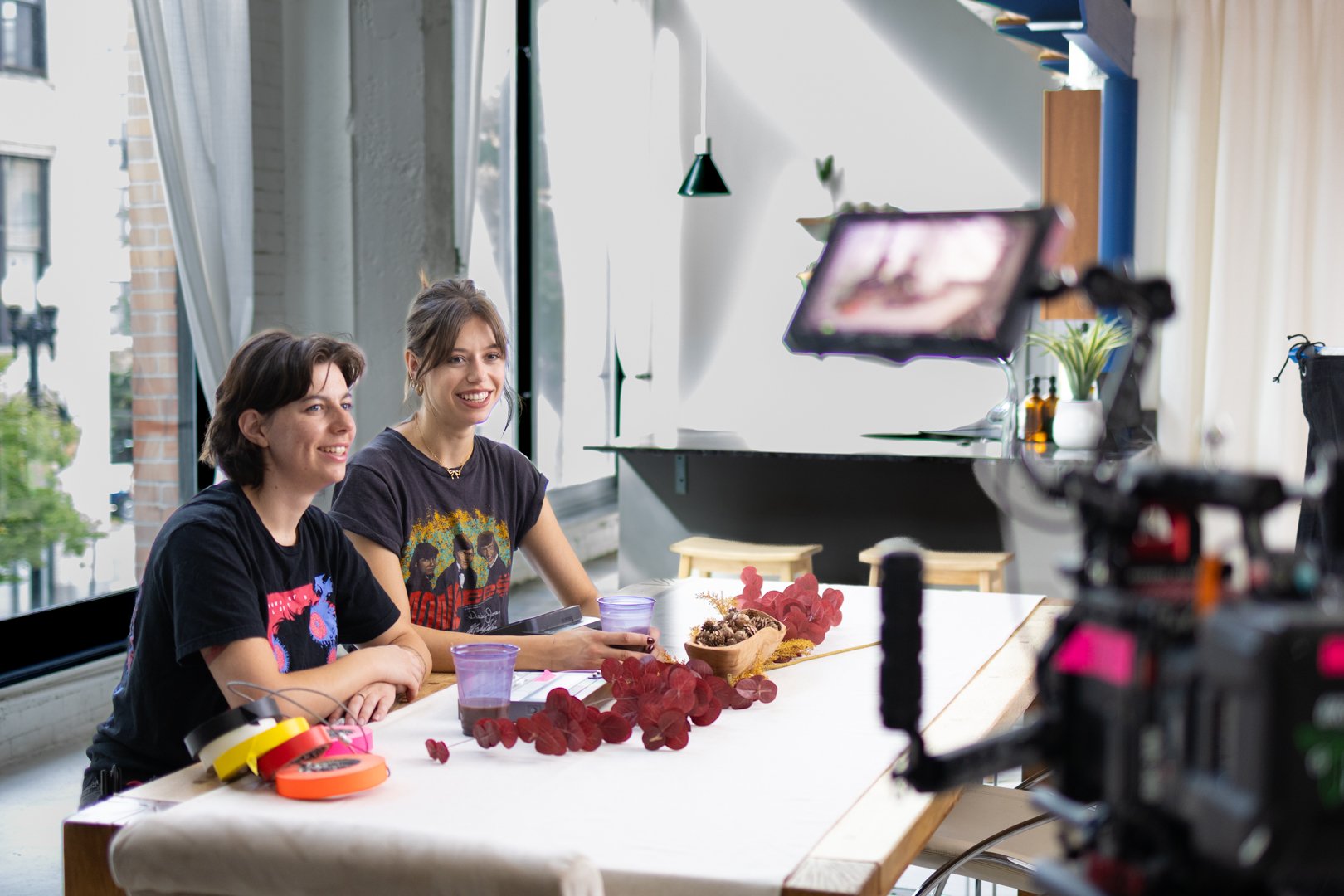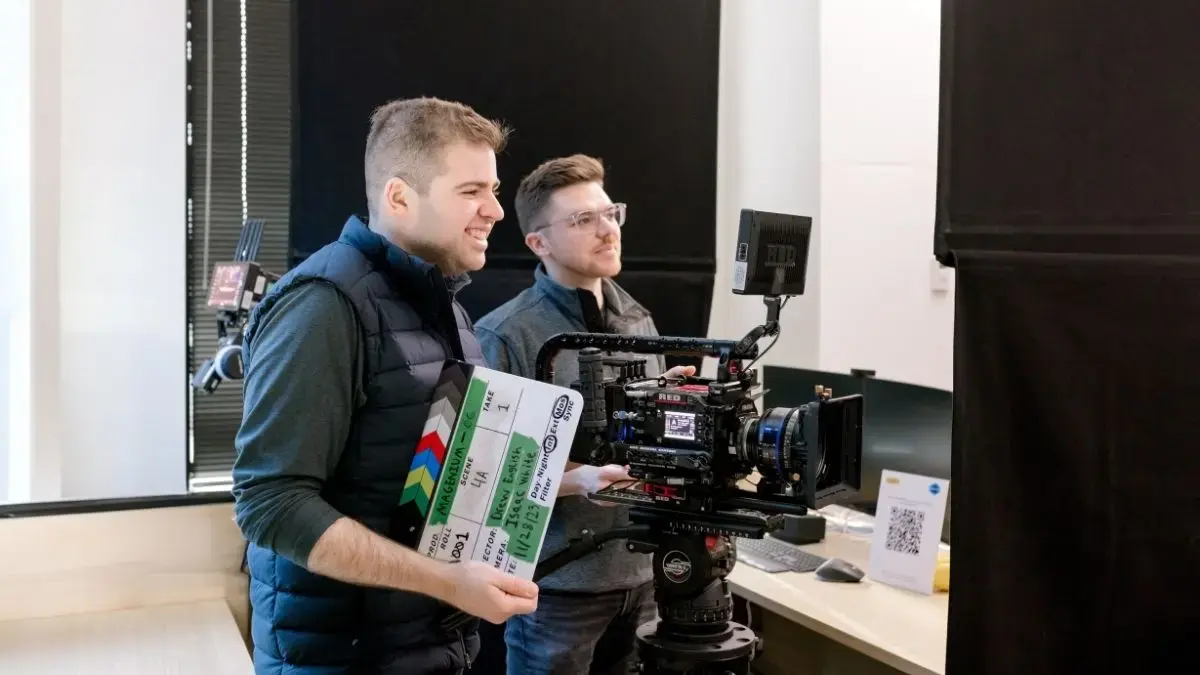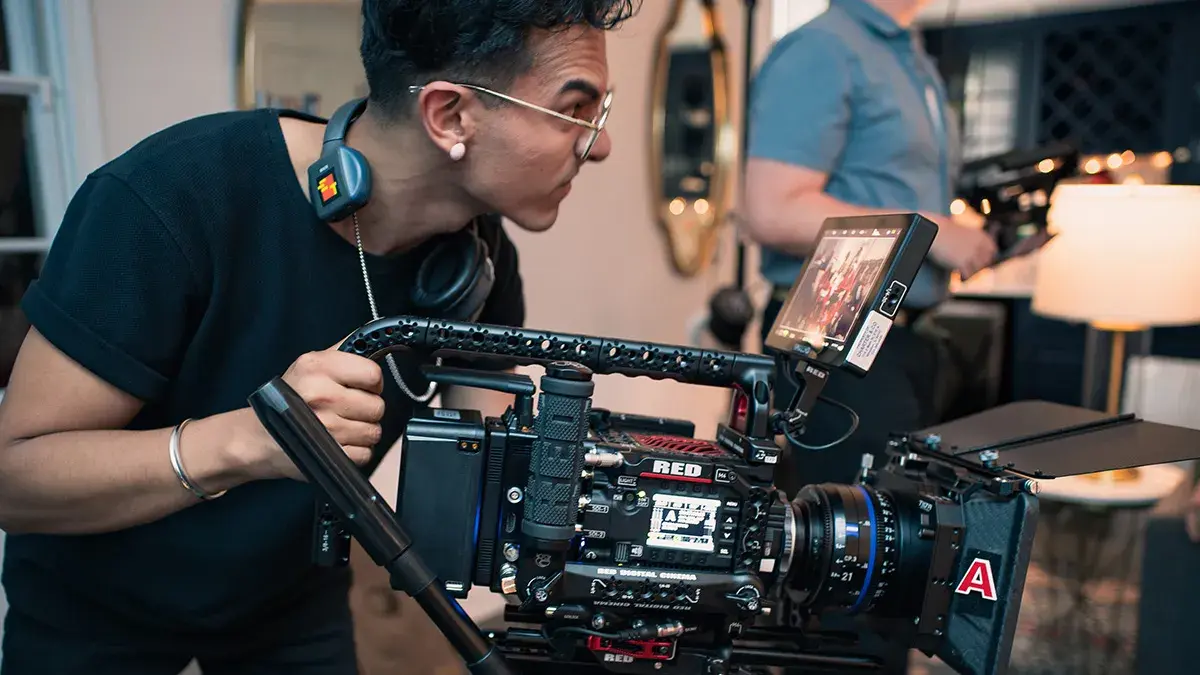Top Video Marketing Trends for 2025 and Beyond
Video has redefined today's digital landscape, making video marketing essential for tech and business-to-business brands in 2025. Keeping up with the...
▶ Video Strategy & Discovery
A video marketing strategy will keep your production cohesive and on schedule.
▶ Creative Treatments, Scripts & Storyboards
Bring your vision to life with professional scriptwriting and storyboarding services.
▶ Production Preparation
Prepare for your corporate video with professional video production services.
▶ Full Service Filming Days
Discover how Charter & Co can help you bring your vision to life through expert on-set filming services.
▶ Video Editing, Color Grading & Sound Design
Elevate your video marketing with Charter & Co’s expert video editing and post-production services.
▶ Motion Graphics
Captivate audiences with videos, ads, and social media that include high-quality animations.
▶ Licensed Music & Voiceovers
Elevate your videos with high-quality music licensing and voiceover services.
▶ Distribution Strategy & Advertising Support
Get your content noticed with a comprehensive video distribution strategy.
▶ Everything Video Marketing
Video marketing resources: What it is, why it matters, and how to do it.
▶ Everything Video Production
Your ultimate guide to video production resources: Tips and tricks for creating masterful videos.
▶ Blog
Helpful Blog resources for all of your video production and marketing needs.

The video marketing trends of 2024 are changing continuously, largely due to social media algorithms and new technology. Social media platforms give you many different ways to put your video content in front of potential customers, business leaders, and other members of your target audience. However, the best video techniques vary by your platform, format, and marketing goals.
Explore the latest trends in video marketing to maximize your promotional campaign.
Many consumers and professionals watch videos on social media, but not everyone always has the sound on. Whether they're on the bus or in bed, there are countless valid reasons someone may watch a muted video. However, this shouldn't be a reason for them to miss out on your content.
Video captions and animated text will keep your videos accessible to everyone, even those who forgot their earbuds at home. Subtitles can encourage viewers to turn the sound on if they read something they like. This can automatically boost your video's engagement in the social media algorithm, making it more likely to be recommended to others.
Silent videos may resonate with viewers more than other voice-over formats. Plus, creating videos without narration encourages you to brainstorm creative ways to communicate your message nonverbally. This practice will benefit your video strategies moving forward.
Short-form videos generally last under 90 seconds and are consistently among social media's most popular types of content. This popularity is due to many factors, including easier accessibility and algorithm preferences. Simply put, more people are willing to watch a 30-second video than a five-minute video — and they'll be more likely to rewatch it, too.
Adopting this shorter format in your video marketing strategies is essential for your online success. Some videos, such as product demos and explainer videos, will always need to be longer. However, mixing in short-form content will keep you relevant across different social media platforms and potentially lead viewers to your more substantial content.
Ideas for short-form videos include:
Social media platforms depend on person-to-person connections, and your marketing strategy should, too. Affiliate programs, customer reviews, testimonials, and other user-generated video strategies can give your brand and products unmatched credibility.
Using interview and voice-over formats, testimonial videos let customers and clients share their thoughts about your organization. These videos can cover product reviews, case studies, success stories, and more.
Testimonials are especially beneficial for business-to-business (B2B) marketing. Showing off your past successes proves to executives and leaders that your business can legitimately benefit theirs.
For example, a B2B software company may ask a client to share how their software has improved their workflow and communication. This could inspire other businesses facing similar challenges to convert to the same software.
Standard explainer videos give viewers an in-depth look at your product or service, highlighting crucial details and answering general questions. Many businesses now partner with online content creators to make in-depth reviews, tutorials, and other types of explainer videos.
User-generated explainer videos can provide a new, crucial perspective on your products or services. Actual customers may consider key details and questions that your marketing team would otherwise overlook. Most importantly, it gets people talking about and engaging with your brand beyond your direct marketing plan.
Vertical videos generally follow a 9:16 aspect ratio. These formats fill up most of the phone screen without the user having to flip it horizontally. They're more convenient for viewers to watch and, because of that, more popular on most social media platforms.
In fact, most social apps with video features, such as Instagram Reels, prioritize vertical videos over other options. Film your social media videos vertically whenever possible, especially for short-form and promotional content.
When uploading horizontal videos, such as a testimonial you initially made for your website, consider options for making it vertical. For example, you may be able to crop and zoom the footage solely around the subject.
Interactive videos take a nontraditional approach to the usual format and are among the unique trends in video marketing. They let viewers adjust the video to see a subject from a new angle, customize it to their preferences, follow a purchasing link, and more.
These online video marketing tools let viewers click or tap on specific parts of the video, such as on a piece of a model's wardrobe. This automatically opens that product's page within the video. The potential customer can then add the item to their cart without having to move to a different page. This convenience may even encourage multiple purchases from the same video.
Spherical or "immersive" videos give your audience a 360-degree look into your visual scene. Viewers can then turn their phones or tap the screen to see your video from every angle. This lets them take the time to distinguish every detail without needing to zoom in.
The best types of 360-degree content for video marketers include:
Many interactive videos let the viewer take control of the narrative. These storytelling videos can point potential customers toward their best products and other sellable calls to action.
For example, an automobile manufacturer could create an interactive video of the car production process. Viewers can choose the specific features and add-ons they're interested in, such as paint colors and vehicle specs. These interactions grab people's attention and introduce them to the brand's different offerings. The end of the video could then show the customized vehicle in action, encouraging viewers to drive the cars themselves.
Long-form videos include practically any content exceeding 10 minutes in length. Although the success and popularity of this video format have been historically mixed, viewers and social media algorithms are embracing longer videos once again.
If you scroll through YouTube in 2024, you may notice many recommended videos over 30 minutes in length — or even a few exceeding 10 hours. There could be many reasons for this. For instance, these longer formats may give the platform better engagement and ad revenue. Regardless, you can easily use these trends in video marketing to your advantage.
Thanks to this change, you no longer need to cut your 20-minute content down to three minutes. Additionally, you can expand your video marketing strategies to different types of content that would've previously been too long.
Ideas for long-form marketing videos include:
Artificial intelligence (AI) is revolutionizing every industry, and marketing is no exception. Many of the latest video marketing strategies with AI are still new and experimental. However, they may quickly change the future of video marketing.
Generative AI can customize videos to different users' preferences and needs. For example, an ad for an online retailer could highlight different products based on the individual's interests. Alternatively, a product's backdrop could be replaced by different landscapes based on the user's location.
While marketers previously attempted similar custom ads, they often required too much work. AI makes these video marketing strategies genuinely scalable and possible, especially as the technology develops further.
AI tools can also help you identify changes and trends in your video marketing campaign. Many social media platforms now use analytics to detect which demographics engage with your content. These can help you recognize your target audience and fine-tune your video marketing techniques.
AI, social media algorithms, interactivity, and other technological developments are revolutionizing how we approach video marketing. However, these new tools and techniques also mean you have a lot to consider in your video production plan.
Partnering with a professional video production company like Charter & Co. can significantly improve your marketing success. Our crew is experienced in every stage of production, from storyboarding through distribution, and can help you maximize every aspect of your video.
Get in touch today to hop on the latest trends in video marketing.

Video has redefined today's digital landscape, making video marketing essential for tech and business-to-business brands in 2025. Keeping up with the...

There are many types of video marketing, from personalized video marketing to social media marketing and everything in between. But one thing is...

History shows why video marketing is so powerful Since cinematography first appeared in the late 1800s, video content has been one of the most...